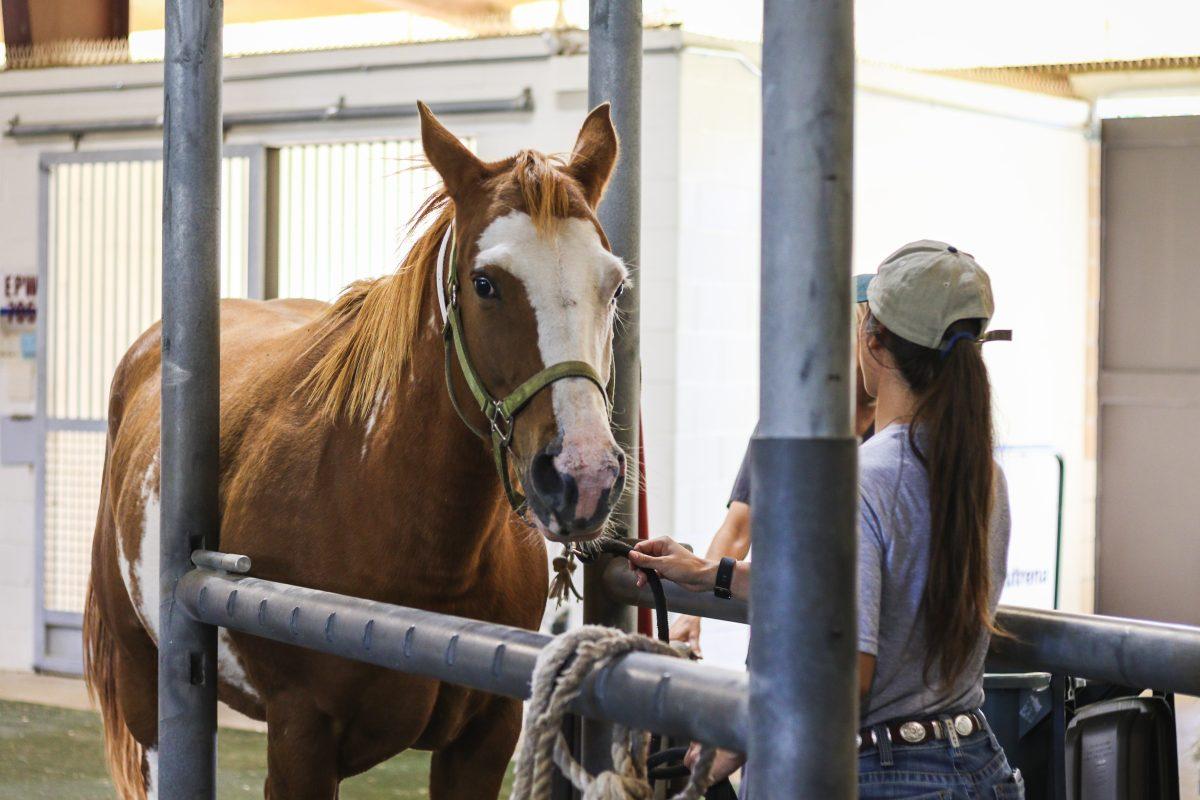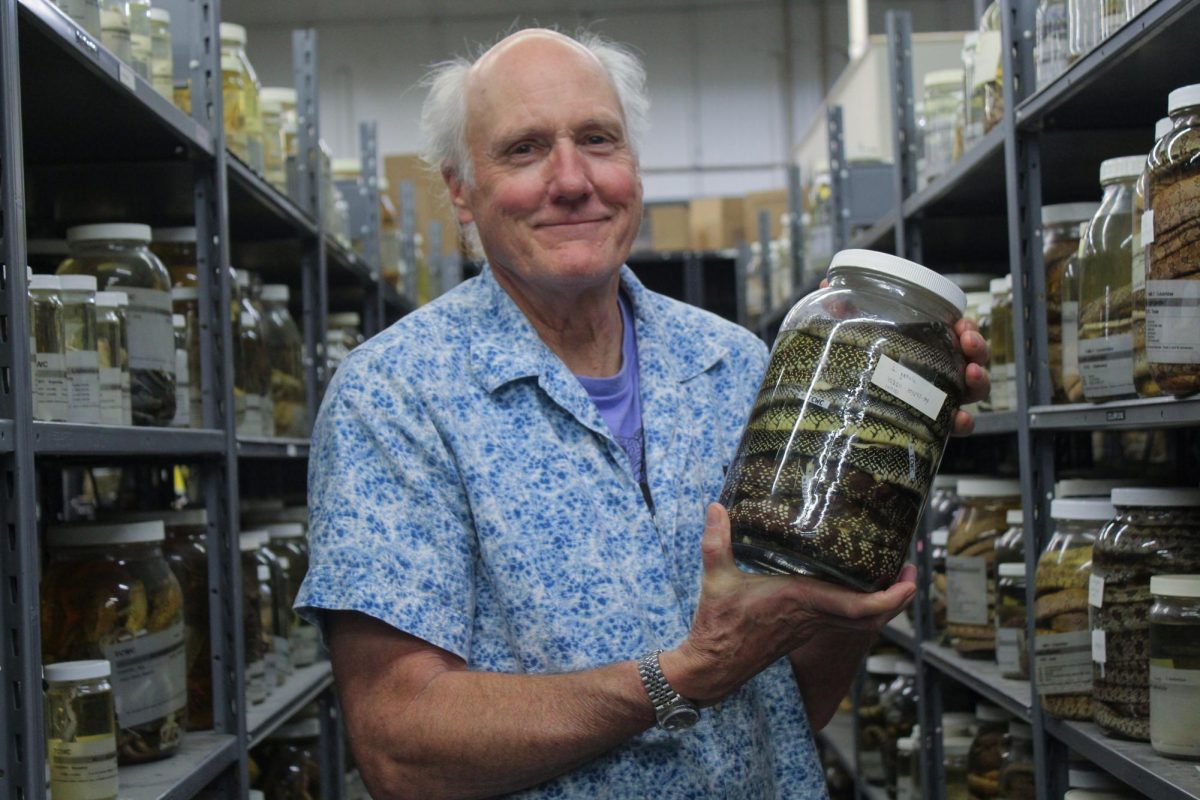Between many required vaccinations and routine checkups, horse owners have likely heard of the Coggins Test for Equine Infectious Anemia (EIA), but may not be aware of what exactly this test entails.
EIA is a disease brought on by a virus which is often transmitted by horse flies and horses who test positive for it are required to be separated from all other horses for the rest of their lives. Approximately two decades ago, Texas regulations to prevent this disease were tightened and have led to the near eradication of EIA, however there are still cases every year.
There are multiple places at Texas A&M which offer testing for disease, including the Texas A&M Veterinary Medical Diagnostic Laboratory (TVMDL) and departments within the Large Animal Hospital.
The disease can have critical effects on horses and is spread by some insects, according to Guy Sheppard, Doctor of Veterinary Medicine and Veterinary Diagnostician at the TVMDL.
“It causes anemia and or a depletion or destruction of red blood cells in horses that are clinically infected,” Sheppard said. “It is mainly transmitted by the transmission of the organism in blood cells. The main vector are blood sucking insects, and the insect that can hold the most blood is the horse fly. They can transmit the most blood so the horse fly is the main vector involved in the transition of EIA.”
Symptoms can last from seven to 30 days after contact with the virus but a horse can still test negative for EIA up to 42 days because their immune system has not produced detectable antibodies, according to Michelle Coleman, assistant professor in the department of Large Animal Clinical Sciences.
The disease affects every horse differently and can either cause extreme visible illness, death or no symptoms at all, Sheppard said.
“Classically infected horses are very ill,” Sheppard said. “They don’t feel good, they have a fever, they may be anemic so they are not eating and they certainly are not going to perform well. They will have drooped ears, drooped head … most of the positive horses have no clinical signs at all and to the knowledge of the owners have never been sick.”
Due to a change in regulations, EIA has become extremely uncommon, but not unheard of, according to Sheppard.
“About 20 to 25 years ago in Texas it became mandatory that anytime a horse changed owners or attended an event where other horses were concentrated, a negative Coggins Test testing for EIA was required for that horse to participate,” Sheppard said. “Because of that, the number of cases has gone down tremendously. We still isolate a few cases each year but the numbers are down considerably from when Texas first started that mandatory testing.”
The Large Animal Hospital has two departments that test for EIA: The Equine Community Practice and Equine Field Service, which travel to patient’s homes to treat the horses. According to Leslie Easterwood, Doctor of Veterinary Medicine and clinical assistant professor of Large Animal Clinical Sciences, the A&M equestrian team is tested yearly for EIA by the Equine Field Service. Other common routine treatments for horses include a wide range of vaccinations.
“We vaccinate for the encephalitides and West Nile viruses,” Easterwood said. “There are three encephalitis viruses that we vaccinate for, and then influenza and rhinopneumonitis, Strangles or strep equi, which is a bacterial disease, and rabies. Those are the most common vaccinations for horses.”
Following the laws set in place and not exposing horses to other horses who have not been tested for EIA is the best way to prevent possible transmission, according to Easterwood. While it is uncommon for horses to travel across the border, Easterwood said it is also important to have horses tested if traveling to or from Mexico because the country still has frequent cases of EIA.
While most horses diagnosed with EIA either never have symptoms or are able to fully recover from their illness, owners are required by law to isolate horses that test positive for EIA for the rest of their lives.
“Anytime you introduce a new horse to the herd it is important to keep it isolated from the other horses for a period of time prior to co-mingling,” Coleman said. “Common sense hygiene of washing your hands and other good hygiene processes to prevent spread of the disease are also important, and then mosquito and bug control is certainly important.”
Rare disease keeps horse owners on their toes
November 1, 2017
Photo by Photo by Abby Collida
Equine Infectious Anemia is a disease spread by insects that can bring on critical symptoms.
0
Donate to The Battalion
$2790
$5000
Contributed
Our Goal
Your donation will support the student journalists of Texas A&M University - College Station. Your contribution will allow us to purchase equipment and cover our annual website hosting costs, in addition to paying freelance staffers for their work, travel costs for coverage and more!
More to Discover










